
Turnitin will be unavailable between 15:00 and 15:30 on Saturday 29 March 2025 for scheduled maintenance.
During this time, you will be unable to submit or grade any assessments.
We apologise for any inconvenience caused.

Turnitin will be unavailable between 15:00 and 15:30 on Saturday 29 March 2025 for scheduled maintenance.
During this time, you will be unable to submit or grade any assessments.
We apologise for any inconvenience caused.

We are pleased to announce the programme for our forthcoming online Mini Conference: Employability and the Inclusive Curriculum.
Taking place between 09:15 and 13:00 on 8 April, in collaboration with colleagues in the Careers Service, places can be booked online.
We will start the conference with a welcome from Professor Anwen Jones at 09:15 before moving onto Dr Aranee Manoharan’s keynote. Dr Manoharan is joining us from King’s College, London. You can read further information on Dr Manoharan’s pioneering work on our blog.
Psychology’s Dr Saffron Passam will be leading an interactive workshop on Future-Proofing Graduates: Embedding Equality, Diversity, and Inclusion as a Core Employability Skill between 10:20 and 10:50.
Theatre, Film and Television Studies’ Dr Louise Ritchie will be leading a session on Staging Success: Integrating Employability in the Drama and Theatre Curriculum (Part 2) between 10:50 and 11:20.
Following a break, School of Education’s Annabel Latham will be joining us for their session Professional Partnerships in HE: a discussion around the co-creation of assessment to embed employability in the curriculum between 11:35 and 12:05.
The event will close with Careers’ Service’s Bev Herring and Jo Hiatt, who will showcase collaborative efforts and plans to enhance employability integration at Aberystwyth University.
We hope that you can make this special event.
Full programme and session abstracts are available on the webpage.

We are delighted to announce the winner of this year’s annual Exemplary Course Award.
Congratulations to Mari Dunning from Lifelong Learning for the award-winning course: XM18210: Writing Women: Feminism in Poetry and Prose.
The panel noted exemplary practice in the courses’ clear introduction and design, strong support and guidance, active and engaging participatory activities, and creative tasks. This was all achieved through an accessible and enthusiastic online learning environment.
Many congratulations to our highly commended and commended recipients:
These 3 courses demonstrated some excellent practices, including: clear and accessible structures, effective use of weekly quizzes, engaging and varied activities, clear marking and feedback processes, creative assessment design, and well-designed learning objectives communicated with clarity.
The award is assessed based on a rubric across four areas:
The courses were of such a high standard, and we look forward to sharing their practices with you in due course.
Many congratulations to this year’s well-deserved recipients.

As leader of our PGCTHE programme, I keep an eye out for resources to help staff teach effectively. These include webinars, podcasts, online toolkits, publications and more. Topics include active learning, online/blended teaching, accessibility/inclusion, and effective learning design based on cognitive science. Below I’ve listed items that came to my attention in the past week. In the interest of clarity, our policy is to show the titles and descriptions in the language of delivery.
Please see the Staff Training booking page for training offered by the LTEU and other Aberystwyth University staff. I hope you find this weekly resource roundup useful. If you have questions or suggestions, please contact our team at lteu@aber.ac.uk. Social media: X.com, BSky.
We are pleased to announce that Panopto Automatic Speech Recognition Captioning was approved at the recent Quality and Standards Committee.
This means that for the academic year 2025-26 and beyond, automatic captions will be applied to your Panopto recordings.
Viewers see the captions appearing at the bottom of the screen or can download a transcript:

Whilst captions will appear automatically next academic year, colleagues can already apply automatic captions to all the recordings in a Panopto folder. Consult Panopto’s guidance on how to do this.
We have been working to enable automatic captions for several years, so we welcome this development. As part of this work, we have taken mitigating steps to address some of the challenges and concerns, including:
Automatic Captions are applied to all recordings on the site once we enable this feature. The default language that will be applied to module folders is English. Modules delivered 100% through the medium of Welsh will have their folder settings manually updated to generate Automatic Captions in Welsh.
We have also undertaken an Equality Impact Assessment to address some of the challenges posed by Automatic Captioning which is available by request (elearning@aber.ac.uk).
To facilitate the enabling of automatic captioning, the Lecture Capture policy has been updated. We review all of our policies (Lecture Capture, Blackboard Required Minimum Presence, and E-submission) annually. We will release further communications regarding these updates in due course.
We will now start work on updating Panopto to enable Automatic Speech Recognition captioning for 2025-26.

We have enabled a new feature on Blackboard called Achievements.
Achievements allow instructors to link student achievement to badges to help recognise their accomplishment or proficiency.
See Blackboard Help for an overview of achievements. The help site will give you advice on the types of activities they can be used for as well as how to set them up.
To create a badge, you need to associate it with a Gradebook column – such as a test, assignment, or Turnitin. You can specify a certain level that needs to be attained to generate the badge.
Students can then view their achievements on the course or organisation from the Achievements tab. We’d welcome working with colleagues to explore how achievements could be used at a scheme or department level.

Panopto will be unavailable between 22:00 on Friday 11 April and 01:00 on Saturday 12 April 2025 for scheduled maintenance.
We apologise for any inconvenience caused.
This year’s Learning and Teaching conference has the theme Innovative Pathways to Empowering Learners: Adapting, Engaging, and Thriving and will be taking place between Tuesday 8 and Thursday 10 July 2025.
You can register for the conference online.
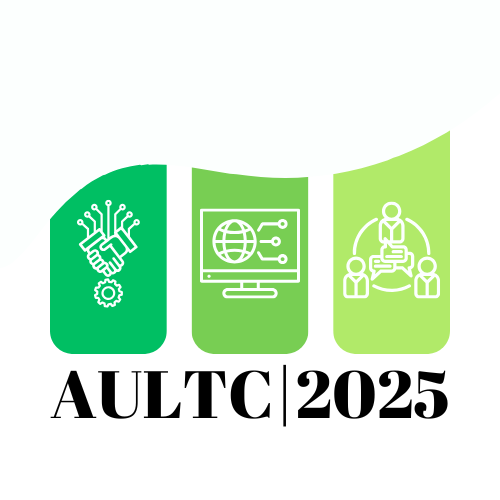

We are delighted to confirm our keynote for our mini conference on Tuesday 8 April.
Dr Aranee Manoharan from Kings College London will be joining us.
Please see below for an overview of Aranee’s keynote and a biography. You can book your place for the mini conference online and we will be announcing the full programme in due course.
If you have got any questions regarding this event, please contact the conference organisers on elearning@aber.ac.uk.
In this keynote, Aranee will introduce an approach to inclusive curriculum design that supports all students to develop the knowledge, skills, and experiences required to successfully navigate the rigours of a VUCA 21st century. The presentation will explore the key principles of inclusive curriculum development that supports student and graduate outcomes, before sharing how employability can be integrated effectively through subject teaching & learning – including using a programmatic approach to curriculum design and high impact pedagogies and assessments. The session will share a range of tools that Aranee has developed through her work with academic and professional services teams in this area; all of which can also be found in the QAA-funded toolkit for Inclusive Employability Development through the Curriculum that she led with colleagues at City University and University of London.
Dr Aranee Manoharan, PhD, SFHEA, FRSA
Aranee is Senior Associate Director for Careers & Employability at King’s College London. With experience across the areas of teaching, student experience, and educational development, as well as EDI and governance, she specialises in taking a whole student lifecycle approach to improving student outcomes. An Advance HE Senior Fellow, she specialises in inclusive approaches to curriculum design to support student and graduate outcomes and has significant experience working with academic teams to facilitate real-world learning, using high-impact pedagogies and assessments, delivered in collaboration with community and industry partners.
A committed advocate for equity and inclusion, Aranee serves on a number of advisory groups, including the Institute for Student Employers (ISE) EDI Working Group; Royal Society of Biology HUBS Awarding Gap Network; Advance HE’s Race Equality Charter Governance Committee; and as a Board Director for AGCAS, where she leads the social mobility, widening participation, and regional inequality portfolio. Aranee is also the Director of AM Coaching & Consulting, a consultancy that supports organisations to establish inclusive working, learning, and research cultures.
What’s new in Blackboard March 2025
In the March update, Blackboard has changed how release conditions work with due dates and included the ability to copy banners from one course to another. Other updates include enhancements to Tests, Assignments, & Gradebook, and Discussions.
When instructors customise release conditions for a content item, the due date for the item is now included with the date and time fields.
Image 1: The due date of a content item now displays after the date and time fields

.
This means that due dates must be between the release conditions of Date/Time that have been applied.
Instructors now have the option to copy banners between courses. Banners can be copied from Ultra or Original courses.
Image 1: The Copy Items page now has the option to select the course banner under Settings
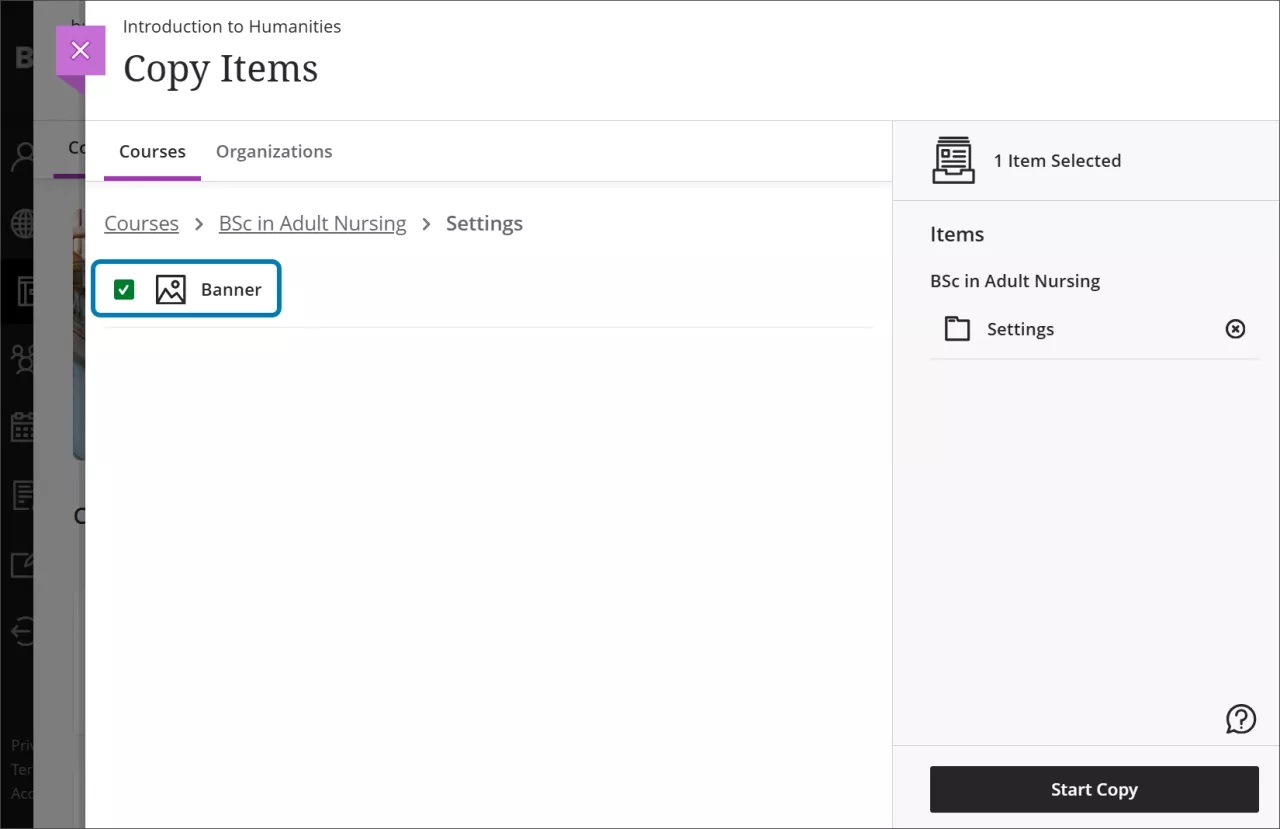
Follow the instructions on copying content for further information.
The following enhancements are grouped under tests, assignment, and gradebook activities.
A new and enhanced student-facing submission review page for tests has been developed.
The new layout means that all feedback is clearly laid out and easy for students to identify.
Image 1: The student view of the graded test submission includes a submission timestamp, submission receipt, and feedback for individual questions.
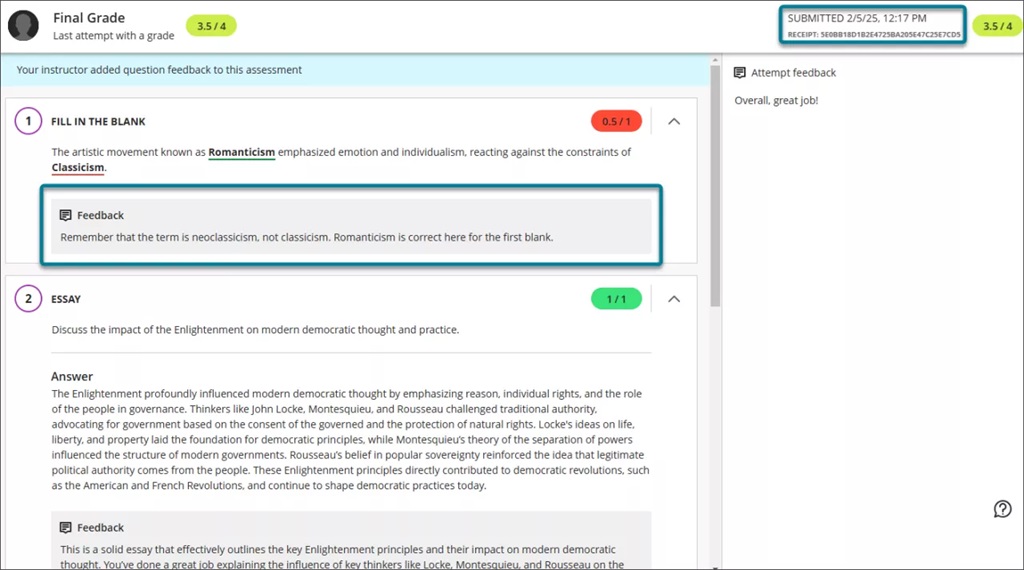
If the test is visible and feedback has been posted, students can access the review page from:
If a student submits multiple attempts, they can review each attempt on the submission review page. The instructor defines which attempt to grade in the test’s final grade calculation setting.
Please note that this does not affect online exams as we advise that the test is hidden from students to prevent them seeing their results.
Instructors can now configure visibility for calculated columns from Items Management in the Gradebook by click on the associated calculation:

Grading rubrics on Blackboard Assignments can pop out into a separate window as part of the assignment workflow.
Image 1: Instructors can pop out the rubric by selecting the expand icon in the rubric panel.
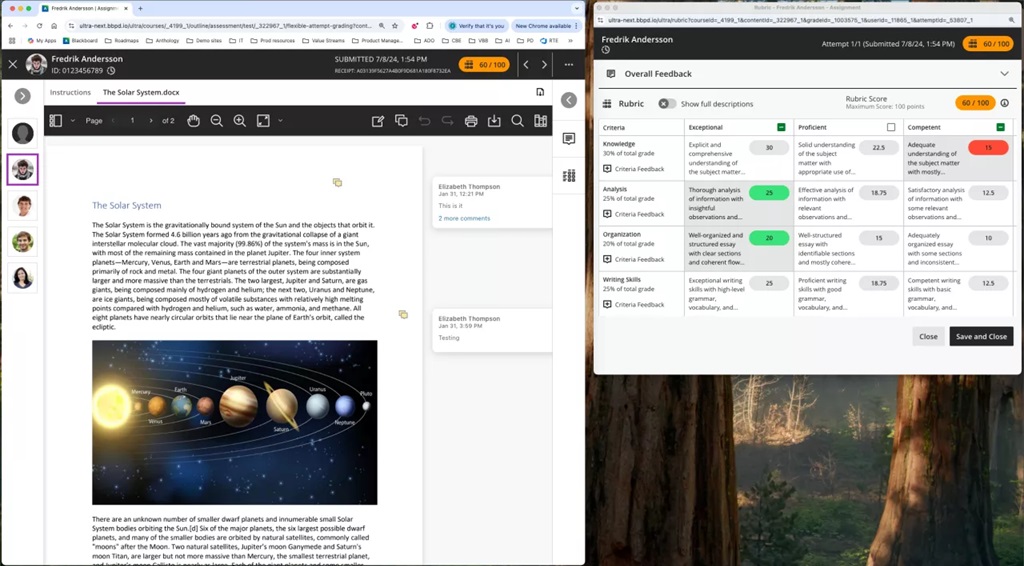
When the pop-out rubric is open, the ability to add Overall Feedback and grade with the rubric in the main grading interface is inactive. This prevents an instructor from editing the same information in two separate places simultaneously.
We recommend using two screens with this enhancement.
Several improvements have been made to Discussions:
Image 1. A long discussion post displayed in its entirety with a grey background.
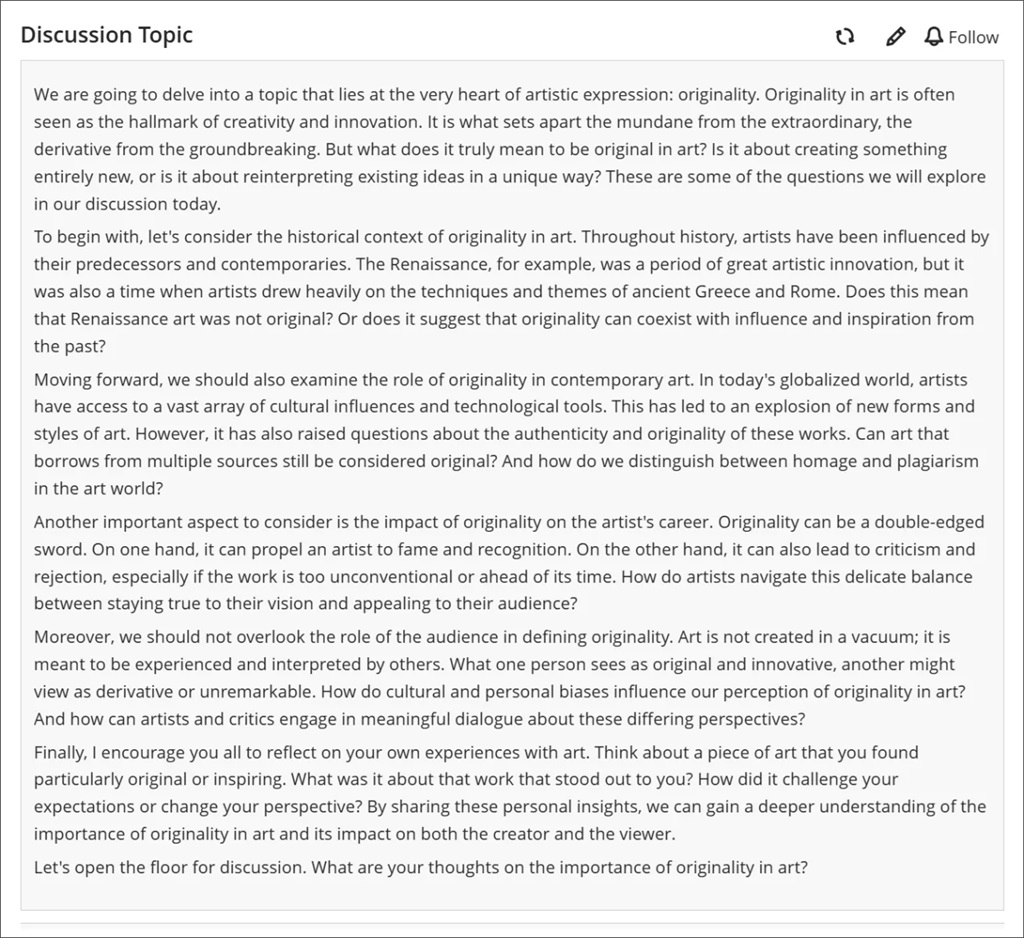
We made several changes to enhance the accessibility of key features on the discussion home page.
Image 2. The changes made to the discussion home page included the addition of an Edit button and a count of posts and replies.
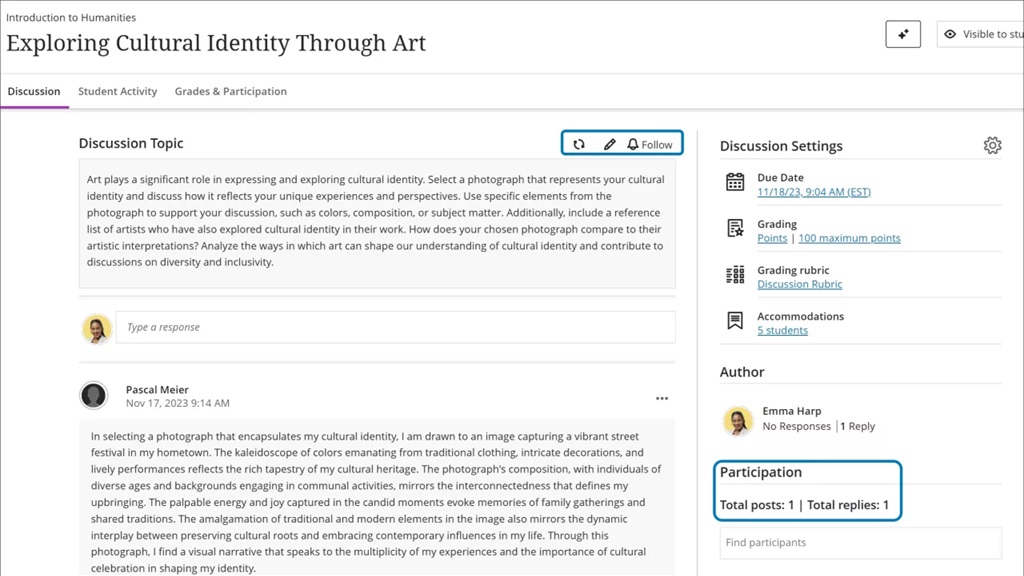
The Discussions page will only be available to students if any of the below conditions are met:
System administrators can now reveal the identity of the author of an anonymous discussion post or reply. If you are running an anonymous Discussion and need to de-anonymise a comment, contact elearning@aber.ac.uk outlining the course, discussion, and post, as well as the rationale for requesting it be de-anonymised.
If you have any enhancements to request from Blackboard, please get in touch with us via elearning@aber.ac.uk.